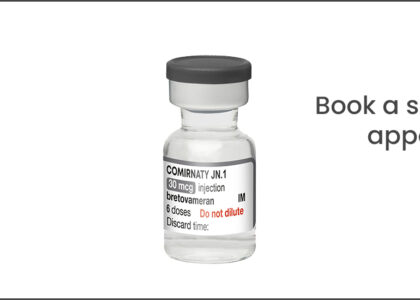Over-the-counter (OTC) medications are a ubiquitous presence in households worldwide. From pain relievers to allergy medications, these easily accessible drugs provide relief for a variety of common ailments. However, along with their widespread use comes a plethora of myths and misconceptions that can influence how people perceive and use these medications. In this blog, we’ll debunk some of the most common myths surrounding over-the-counter medications.
Myth 1: OTC Medications Are Always Safe Because They Don’t Require a Prescription
One of the prevailing myths about OTC medications is that they are entirely safe simply because they are available without a prescription. While it’s true that OTC medications undergo rigorous testing before hitting the shelves, it doesn’t mean they are risk-free. Every medication, whether prescription or over-the-counter, comes with potential side effects and risks. It’s crucial to read and follow the instructions carefully, especially if you have underlying health conditions or are taking other medications.
Myth 2: OTC Pain Relievers Are All the Same
Many people believe that all over-the-counter pain relievers are interchangeable. However, different OTC pain relievers contain different active ingredients, such as acetaminophen, ibuprofen, or aspirin, each with its unique properties and potential side effects. Understanding the differences can help you choose the most suitable option for your specific needs and avoid potential interactions with other medications you may be taking.
Myth 3: If One Tablet Is Good, Two Must Be Better
It’s a common misconception that doubling the recommended dose of an OTC medication will provide faster or more effective relief. However, exceeding the recommended dosage can lead to adverse effects and, in some cases, serious health risks. Always adhere to the recommended dosage instructions on the packaging or consult with a healthcare professional if you have questions about the appropriate dose for your condition.
Myth 4: OTC Medications Are Completely Risk-Free During Pregnancy
Pregnant women often assume that because a medication is available over the counter, it’s safe to use during pregnancy. In reality, some OTC medications may pose risks to the developing fetus. Pregnant women should always consult their healthcare provider before taking any medications, even those available without a prescription, to ensure the safety of both the mother and the baby.
Myth 5: OTC Medications Are Only for Physical Ailments
Over-the-counter medications are not limited to treating physical ailments; they can also address common mental health issues. For example, certain OTC medications may help relieve symptoms of anxiety or insomnia. However, it’s essential to use them with caution and under the guidance of a healthcare professional, as they may interact with other medications or exacerbate underlying conditions.
Myth 6: Allergy Medications Will Cure All Allergic Reactions
While OTC allergy medications can provide relief from symptoms like sneezing and itching, they don’t address the root cause of allergies. Allergies can be triggered by various substances, and OTC medications may only offer temporary relief. Identifying and avoiding allergens, with the guidance of a healthcare professional, is crucial for effective allergy management.
Myth 7: OTC Medications Are Always the First Line of Defense
It’s a common belief that OTC medications should be the go-to solution for every minor ailment. While they can be effective for many conditions, it’s essential to consider other non-pharmacological approaches, such as lifestyle changes, rest, and hydration, before reaching for OTC medications. Sometimes, simple self-care measures can be as effective, if not more so, than immediate medication.
In conclusion, while over-the-counter medications are valuable tools for managing common health issues, it’s crucial to approach them with knowledge and caution. Dispelling these myths allows individuals to make informed decisions about their health and use OTC medications safely and effectively. Always read the labels, follow recommended dosages, and consult with a healthcare professional if you have any concerns or questions about the use of over-the-counter medications. Remember, your health is a priority, and understanding the facts about OTC medications is a key step in maintaining it.





